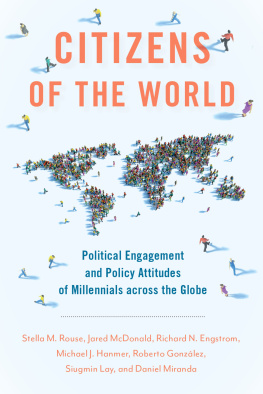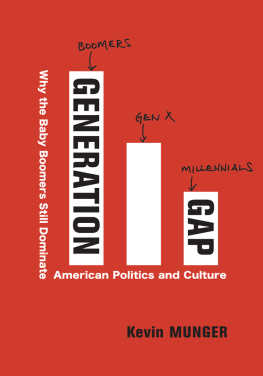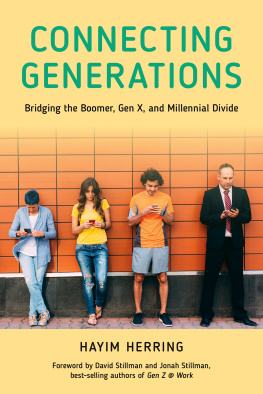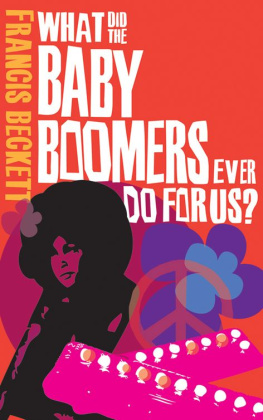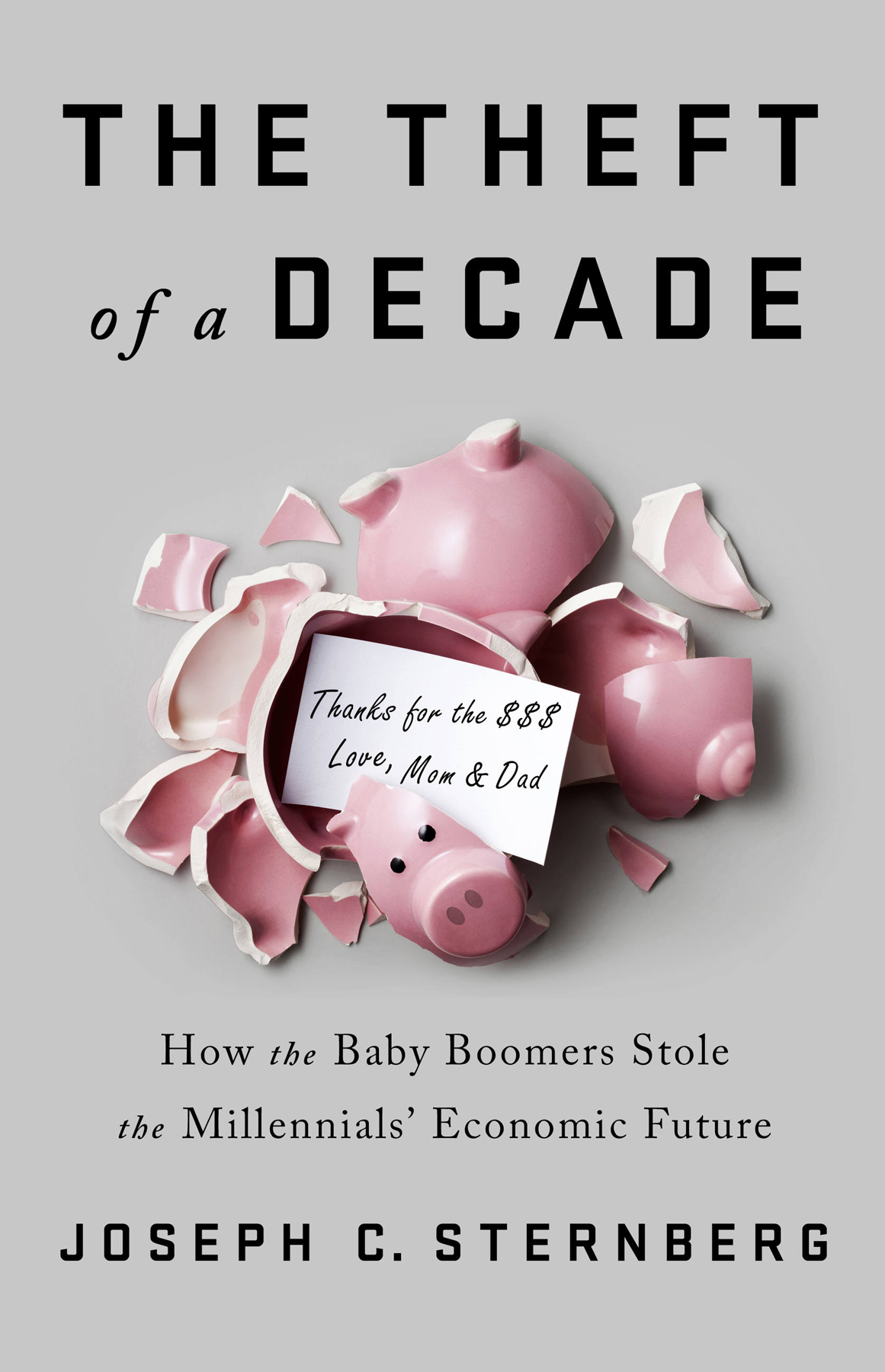Copyright 2019 by Joseph C. Sternberg
Cover design by Pete Garceau
Cover photograph copyright iStock/Getty Images
Cover copyright 2019 Hachette Book Group, Inc.
Hachette Book Group supports the right to free expression and the value of copyright. The purpose of copyright is to encourage writers and artists to produce the creative works that enrich our culture.
The scanning, uploading, and distribution of this book without permission is a theft of the authors intellectual property. If you would like permission to use material from the book (other than for review purposes), please contact permissions@hbgusa.com. Thank you for your support of the authors rights.
PublicAffairs
Hachette Book Group
1290 Avenue of the Americas, New York, NY 10104
www.publicaffairsbooks.com
@Public_Affairs
First Edition: May 2019
Published by PublicAffairs, an imprint of Perseus Books, LLC, a subsidiary of Hachette Book Group, Inc. The PublicAffairs name and logo is a trademark of the Hachette Book Group.
The Hachette Speakers Bureau provides a wide range of authors for speaking events. To find out more, go to www.hachettespeakersbureau.com or call (866) 376-6591.
The publisher is not responsible for websites (or their content) that are not owned by the publisher.
The Library of Congress has cataloged the hardcover edition as follows:
Names: Sternberg, Joseph C., author.
Title: The theft of a decade : baby boomers, millennials, and the distortion of our economy / Joseph Sternberg.
Description: First edition. | New York : PublicAffairs, [2019] | Includes bibliographical references and index.
Identifiers: LCCN 2018053192 (print) | LCCN 2018055305 (ebook) | ISBN 9781541742383 (ebook) | ISBN 9781541742369 (hardcover)
Subjects: LCSH: Generation YUnited StatesSocial conditions. | Generation YUnited StatesEconomic conditions. | United StatesEconomic conditions1945 | United StatesSocial conditions1945
Classification: LCC HQ796 (ebook) | LCC HQ796 .S82684 2019 (print) | DDC 305.2dc23
LC record available at https://lccn.loc.gov/2018053192
ISBNs: 978-1-5417-4236-9 (hardcover), 978-1-5417-4238-3 (ebook)
E3-20190410-JV-NF-ORI
THIS IS A BOOK ABOUT AVOCADOES .
A curious global debate erupted in 2017. Amid years worth of complaints that young adults couldnt afford to climb onto the first rung of the property ladder, Australian businessman Tim Gurner told a television interviewer the solution was easy: eat a simpler breakfast. When I was trying to buy my first home, I wasnt buying smashed avocado for $19 and four coffees at $4 each, he said on Australias 60 Minutes.
Then came the reaction to the reaction. Avocado toast, expensive hobbies, car payments and the other splurges hurt our finances in huge ways, personal-finance columnist Holly Johnson wrote in the Indianapolis Star. Johnson did some math of her own: For example, ditch spending $20 on lunch and coffee on weekdays and youve got $100 per week and $400 per month to save. Thats $4,800 [per year] to save for a home or throw towards those nagging student loans.

The whole avocado thing neatly encapsulates the way we think and talk about Millennials. Gurner didnt literally mean that one could save for a down payment simply by giving the Starbucks or the vegan caf a pass in the morning, even if we do all spend more than we realize on fancy coffee each year. But he was pretty direct in claiming todays young people are lazy. The bigger point of his avocado riff was his account of his intense work ethic when he was just starting out, working what sounds like eighteen-hour days to build a property empire. He argued that todays twenty-somethings have lost that element of get-up-and-go. Theyre not trying as hard as their elders did to get ahead in the world, and shouldnt be surprised when they dont enjoy material payoffs as a result.
This impression of youth work ethic is unfair to Millennials. But its a pervasive attitude that seems intuitive to a lot of older adults and even many younger ones. And one reason so many older adults believe younger adults are spoiled is because in a way we are.
Much of this is the legacy of the Baby Boomers. The way we talk about the Boomers is just as skewed as the way we discuss their Millennial young adult children. Boomers get a bad rap, sometimes deservedly so, for their selfishness and frivolity, their spendthrift tendencies and their apparent fear of aging, their failure to think about the future. One author has even called them a generation of sociopaths. But the One Big Thing theyve done right is to create a world for their children that is in many important ways more secure and more prosperous than the one they inherited, or than any previous generation could have imagined. The Boomers reduced or eliminated many of the threats that used to imperil young peopleby curing diseases, installing airbags in cars, inventing new weapons to fight wars at lower risk to troops, and so much more. And other benefits are in store, too. The avocado uproar obscured what to an economist was one of Tim Gurners more interesting observations: Baby Boomers will eventually pass to their children an enormous inheritance windfall in the form of the Boomers own houses. Why arent their kids a little more grateful?
The paradox for Millennials is that while daily life is now safer and more comfortable than ever before, long-term security feels much more elusive than it was for our parents, even as those parents didnt always have such an easy time either. We can have that avocado toast, or vegan granola, or a tall skinny chai latte, on our way to work. But that work is more likely to be a contract position with fewer benefits than our parents had. We can live among the bright lights, constant stimulation, and modern conveniences of the big city. But good luck affording our first house or apartment. We can stash away some spare changeperhaps from eating less avocado toastin an online bank account whose balance we can check on our smartphones, but how much will we need for a comfortable retirement, and will we ever be able to save up that much spare change? We can inherit substantial property wealth from our parents estates, but considering our parents average life expectancies, were unlikely to get our hands on that money when we really need it to buy a house, invest for our retirement, or put our own kids through college one day.
So both sides were right in the Great Avocado Battle of 2017. Millennials are spoiled in ways that baffle both our elders and ourselves. But we also are suffering economically, in ways that will have profound consequences. That paradox can, and should, be framed in a more controversial way: How is it that the Baby Boomers who are bequeathing their children such a comfortable today have also managed to steal those childrens tomorrows out from under them? Thats the story of this book.
Millennial Madness
First, though, a simple question with a surprisingly complex answer: What the heck is a Millennial, anyway? There are scads of books and articles debating how to market to us in stores and online, and how to manage us in the workplace; what we like to watch on TV and at the movies, and where we like to live; and what we think about the society around us, and how we vote. Were variously described either as Americas next greatest generation in waiting or as a bunch of pathetic snowflakes who will never make anything of ourselves or our country. Millennials ourselves seem unsure about whether we face the prospect of a difficult life or whether were the luckiest generation in history. And we dont know whether were victims of social and economic forces beyond our control or whether were victims of our own bad decisions.


